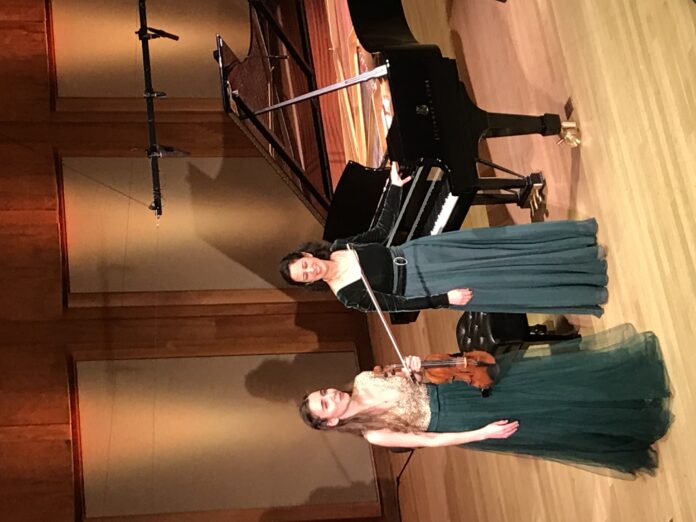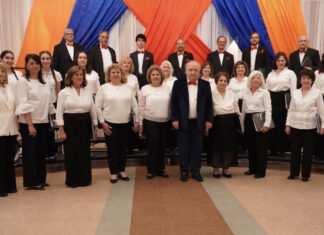By Ara Arakelian
CAMBRIDGE, Mass. – The Pickman Hall of the Longy School of Music was brimming with excitement last Thursday evening, December 7, when violinist Diana Adamyan took the stage for her much-anticipated Boston Recital Debut, presented by the prestigious Celebrity Series of Boston. She performed with one of Boston’s most distinguished artists, pianist Renana Gutman.
Adamyan, 23, may not be a house-hold name, but if this recital and her latest streak of successes are any indication, she is well on her way to a solid career as a violinist and an artist with a unique voice. After winning the coveted Menuhin Competition in Germany in 2018, her professional advancement was briefly interrupted by the pandemic amid wide engagement cancellations and misfortunes that befell the classical music presenters. But as the fog of Covid lifted, Adamyan bounced back. One of the most influential artist management firms, Opus 3 Artists, signed her up in 2021 and has since steadily – and measurably – provided her with guidance and performance opportunities around the world. A few impressive debuts ensued, including appearances as soloist with orchestra in Germany, and in the United States in Aspen, Colorado, as well as with the Boston Pops for the Armenian Night at the Pops, all in 2022.
Adamyan’s diminutive figure belies her inner strength and tenacity. On the stage, wearing a warm yet timid smile, she exudes confidence the minute the music starts. And she draws in the listener as she goes on her journey.
For this recital, Adamyan found in Gutman the consummate collaborative partner who supported her throughout a varied and eclectic repertoire. Playing on a 1760 Nicolo Gagliano violin which pre-dates by 21 years the Mozart sonata (in B-flat, K. 378) for violin and piano which opened the program, Adamyan articulated the contrasting themes of the first movement with sensitivity and restrained joy. Ms. Gutman’s mastery of the classical style and spontaneity contributed to the humor, sparkle, and the energy of the Rondo movement, which the duo conveyed with great aplomb.
The rarely performed Five Pieces for violin and piano (Op. 81) by Finnish composer Jean Sibelius followed the Mozart. Written in a span of a few years after World War I, these salon pieces range from the introverted to the zestful and highlight the capabilities of the violin as an expressive instrument. Here Adamyan seemed completely at home; instrument and artist blended, and passionate storytelling became the goal. The middle piece (Valse) was notable for its touch of sadness and inward character while the Aubade (Dawn) was memorable for its lightness and optimism. A charming but melancholic Humoresque (No. 3, Op. 89) also by Sibelius closed the first half of the concert.








